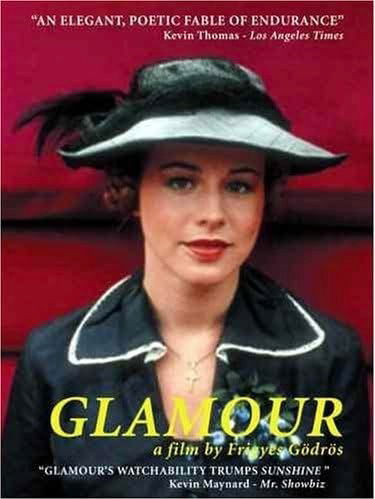“Honor Thy Mother and Father”

| None | Light | Moderate | Heavy | |
|---|---|---|---|---|
| Language | ||||
| Violence | ||||
| Sex | ||||
| Nudity |
What You Need To Know:
Though confusing at times, GLAMOUR is a loving, somewhat Christian tribute to a man’s father and mother. It is also a whimsical tribute to the perseverance of their family throughout the capricious events of the 20th Century. Viewers also get to see the local priest survive Communist persecution. His faith sustains him, just as love sustains the souls of the parents in the movie. The movie ends with all the characters, dead and living, riding a carousal. The camera freezes on their faces as music plays. GLAMOUR includes, regrettably, some brief sexual content, nudity and violence
Content:
(CC, BB, ACAC, Ro, Pa, LL, VV, SS, NN, AA, D, M) Christian worldview with Jewish & moral elements, plus Anti-Communist content & romantic elements, some involving use of magical realism as poetic symbolism; 10 obscenities, including 1 “f” word, & 2 mild obscenities (“My God” & “Good Lord”); some violence such as sounds of Communist thugs beating Roman Catholic priest in next room, two men shot by stray bullets, Hungarian soldier commits suicide after discharge from army for being a Jew, Rabbi ponders suicide when Communists take away his living, & tyrannical Communist “hanging judge” flagellates himself with a twig in drunken repentance over his sins; Communists tempt Roman Catholic priest with semi-nude woman, married couple has intercourse while clothed & precocious teenager takes off clothes in front of teenage boy; upper female nudity in one scene, rear female nudity in another scene & woman in nightgown in two scenes; alcohol use & drunken Communist officials shown; smoking; and, miscellaneous immorality such as anti-Semitism & government tyranny rebuked.
More Detail:
Written and directed by Frigyes Godros, GLAMOUR is a family memoir of his father and mother’s life. The movie opens with the father as a young boy attending the family Passover Seder in a small village. The grandfather is the local Rabbi who also owns a furniture store in a secluded courtyard to earn a living. Magically, frogs and locusts appear on the table to represent the plagues on Egypt in Exodus, but then disappear. One of the boys goes to open the door for the Messiah to come.
Shortly thereafter, the 1917 Communist revolution in Hungary occurs, spurred on by the one in Moscow, Russia. Communist thugs take away all the furniture in the grandfather’s shop. As they load their truck, the grandfather contemplates suicide. He does not go through with it, however, when he sees his image in the mirror. He thinks he looks like a mad flute player with the shotgun in his mouth, so he laughs and cries hysterically. He then goes outside, tosses one of the Communist’s hats into the air and shoots a hole in it. “Wine for everybody!” he declares joyously. They hold a raucous feast, then the Communists take off with their loaded truck. Days or months later, however, the “Red Terror” is put down, and the new regime returns the grandfather’s furniture.
Years later, the father, named Imre, is grown up and is looking over some photos of brides from the local matchmaker. Imre decides the family needs new blood, so he picks a German girl, Gerda, and converts to Roman Catholicism, much to the grandfather’s chagrin. “I’ve raised a viper in my bosom!” Grandfather laments.
Gerda arrives, and it is love at first sight. Hungary’s alliance with National Socialist (Nazi) Germany, however, means that even a converted Jew cannot marry a Gentile unless the Gentile is divorced. So, Imre forces the upholsterer of his father’s shop, Antika, to become the false husband. Antika and Gerda pretend to be married, with Imre watching them like a hawk until they can divorce. Soon, however, Gerda and Imre are married by the local priest.
The rest of GLAMOUR shows how their love endures despite Grandfather’s disapproval, a Nazi labor camp, World War II, the Communist tyranny that follows World War II, and the Hungarian Anti-Communist uprising in 1952-53. The movie ends with all the characters, dead and living, riding a merry-go-round or carousel. A younger Gerda and Imre dance and the camera freezes on their pleasant faces as the Music of Life plays in the background.
GLAMOUR is a loving tribute to a man’s father and mother. It is also a whimsical tribute to the perseverance of them and their family throughout the capricious events of the 20th Century. Viewers also get to see the local priest survive Communist persecution. His faith sustains him, just as love sustains the souls of the parents in the movie.
The actors are fully in tune with the droll, romantic spirit of this movie, which also includes some elements of magical realism, such as the carousel, which are meant to symbolize the story’s themes. GLAMOUR also includes some brief sexual content, nudity and violence, which spoil the movie’s Christian worldview.


 - Content:
- Content: 

